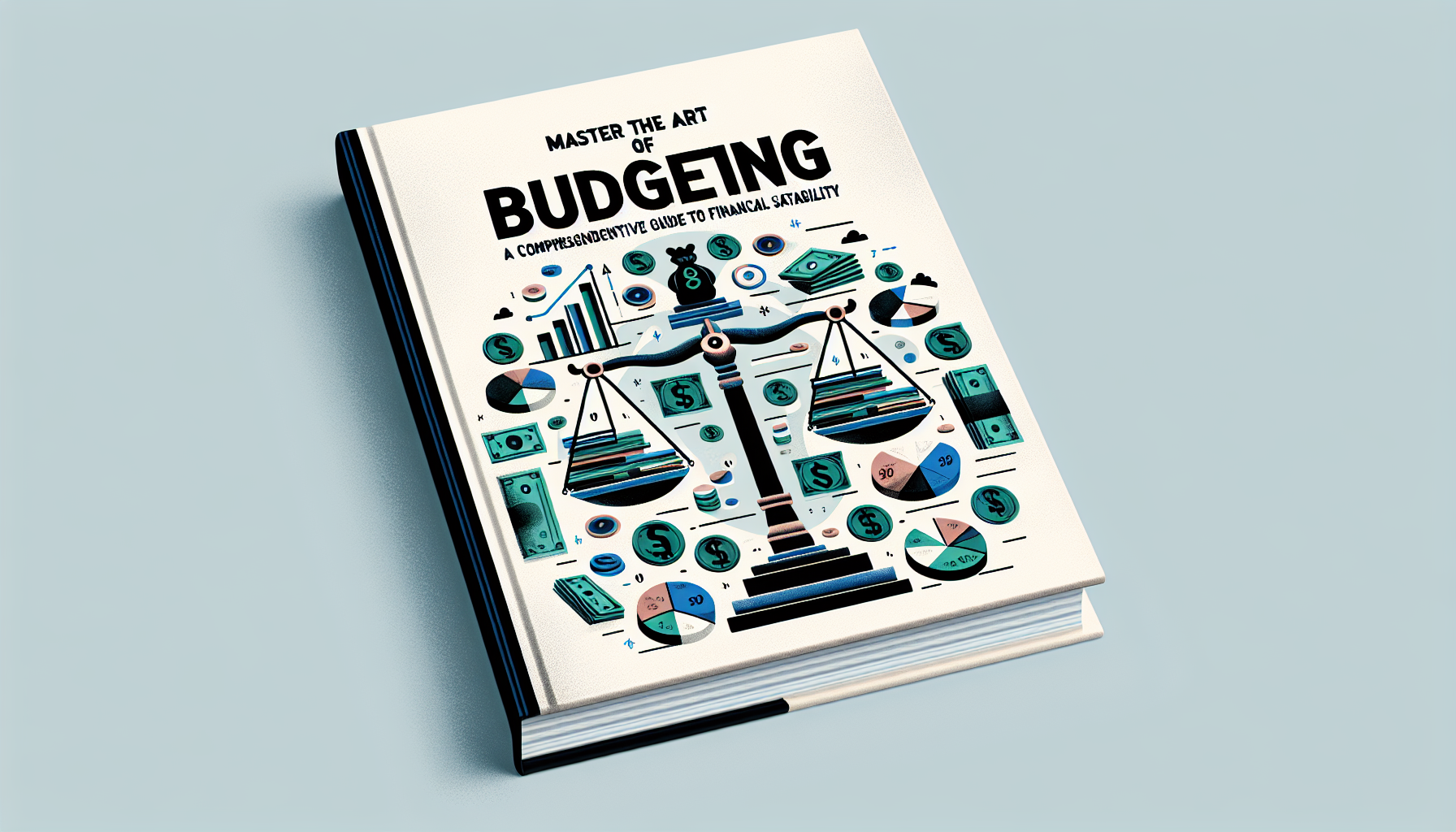Uncategorized
Master the Art of Budgeting: A Comprehensive Guide to Financial Stability

Learning how to budget effectively is the cornerstone of financial health and stability. In this extensive guide, we’ll delve into the strategies that can help you manage your money wisely, regardless of your starting point. Whether you’re looking to eliminate debt, save for major purchases, or invest for the future, this article will provide the tools and knowledge needed to build a strong financial foundation.
Why Budgeting Matters for Financial Stability
Understanding the importance of budgeting is crucial. A budget serves as a roadmap for your financial journey, helping you plan expenses, manage debt, and prepare for unexpected expenses. It empowers you to make informed decisions and sets you on a path to achieving your financial goals.
Crafting a Budget: The Essentials
Creating a budget that works for you involves understanding your income and expenses. Here are the steps to get started:
✅ Determine Your Net Income: Calculate your total earnings after taxes to understand how much you can spend.
✅ Track Your Expenses: Identify fixed, variable, and discretionary expenses to find areas where you can save.
✅ Set Clear Financial Goals: Define short-term and long-term objectives that align with your values and lifestyle.
Budgeting Tools and Techniques
Modern technology offers a plethora of tools to streamline the budgeting process:
💸 Use Budgeting Apps: Tools like Mint, YNAB, or Personal Capital can automate tracking and offer insights.
📊 Spreadsheets and Templates: Traditional yet effective methods to customize and control your budget plan.
💸 The 50/30/20 Rule: A simple yet powerful guideline to allocate your income — 50% to needs, 30% to wants, and 20% to savings/debt repayment.
Sticking to Your Budget: Tips for Success
Staying committed to your budget requires discipline and motivation:
✅ Regularly Review and Adjust: Frequent check-ins allow you to adapt to changing circumstances and keep you on track.
✅ Cultivate Frugality and Mindfulness: Being conscious about spending can boost savings and free up resources for goals.
🏡 Automate Savings: Direct irregular income into savings accounts to create financial buffers.
Common Budgeting Challenges and How to Overcome Them
Everyone faces hurdles when maintaining a budget. Addressing these common issues can help maintain consistency:
• Overestimating Income: Always base your budget on the lower end of your income expectations.
• Lifestyle Inflation: As your income increases, keep your spending in check to enhance savings.
• Emergency Situations: Establish an emergency fund to handle unforeseen expenses without impacting your budget drastically.
FAQs on Budgeting
- What is the best way to start budgeting?
Begin by analyzing your spending patterns, set goals, and choose tools that suit your financial habits. - How often should I review my budget?
Review monthly, but adjust for major life changes like a new job or moving. - What if I can’t stick to my budget?
Reassess your spending habits and priorities, and consider consulting a financial advisor if needed.
Maintaining a well-structured budget is about making conscious choices that align with your financial aspirations. By employing practical tips and taking control of your money, you’ll pave the way to lasting financial independence and peace of mind.
Uncategorized
Mastering Financial Literacy: Empower Your Future Today!

Mastering Financial Literacy: Empower Your Future Today!
Financial literacy is more than just understanding numbers — it’s about making informed decisions that manifest in a secure and prosperous future. Whether you’re grappling with debt, learning how to budget effectively, or seeking ways to invest wisely, this guide is designed to empower you every step of the way.
Understanding Financial Literacy
Financial literacy encompasses the skills and knowledge that allow you to make informed and effective money-management decisions. It’s critical in developing responsible money habits and achieving financial independence.
Why Financial Literacy Matters
- Improves your ability to manage financial resources effectively for lifetime security.
- Enables informed financial decision-making.
- Enhances your ability to budget, save, and invest wisely.
Building a Budget That Works
Creating a budget is the cornerstone of financial stability. Follow these actionable steps to craft a budget that aligns with your goals and lifestyle:
Steps to Effective Budgeting
- Assess Your Income and Expenses: List all your income sources and monthly expenses. Be thorough!
- Set Clear Goals: Establish short-term and long-term financial goals. This will guide your budget priorities.
- Create a Plan: Allocate funds to each expense category, ensuring essential costs are covered first.
- Monitor and Adjust: Regularly review your budget and make adjustments as needed to meet your goals.
Strategies to Effectively Manage Debt
Debt can be a significant hurdle to financial freedom. Implement these strategies to manage and eliminate debt effectively:
Debt Reduction Techniques
- Debt Snowball Method: Pay off smallest debts first to build momentum.
- Debt Avalanche Method: Tackle high-interest debts first to minimize cost over time.
- Consider Consolidation: Streamline payments with a debt consolidation loan if it reduces interest rates and costs.
Investing for Long-term Wealth
Investing is a powerful tool for building wealth over time. Start early and consider these smart strategies:
Investment Tips
- Diversify Your Portfolio: Spread investments across different asset types to mitigate risk.
- Contribute Regularly: Set up automatic contributions to investment accounts.
- Educate Yourself: Continuously learn about markets and instruments to refine your strategy.
FAQs on Financial Literacy
- What is financial literacy and why is it important? Financial literacy involves understanding and using various financial skills effectively. It’s crucial for making sound financial decisions and achieving independence.
- How can I start learning about personal finance? Begin by reading articles, books, and taking online courses focused on budgeting, saving, and investing.
- What are some basic investing tips for beginners? Start with setting clear goals, learning about different investment vehicles, and considering working with a financial advisor if needed.
Mastering financial literacy is a journey. By applying these principles, you’ll not only gain control over your finances but also pave the path to a more secure and prosperous future. 💸
Uncategorized
SEO-optimized title that sparks curiosity and delivers value

Write a well-structured blog article of up to 5000 words, fully optimized for SEO. The content should be geared toward readers who want to improve their financial life — whether they’re paying off debt, learning how to budget, saving for the future, or exploring smart ways to invest and protect their income.
Focus on practical advice, responsible money habits, and easy-to-follow strategies that help people build lasting financial stability, regardless of their current income or experience.
⚙️ Apply SEO techniques:
Use
and
subheadings with the main keyword and natural variations
Include checkmark ✅ or bullet lists where helpful
End with a FAQ block answering real and common questions on the topic
Use emojis 💸📊🏡 where appropriate to keep the tone friendly and relatable
Make sure the article is accurate, up-to-date, and formatted in clean HTML. Maintain a clear, accessible, and empowering tone. Deliver content with authenticity, financial responsibility, and encouragement. Help the reader take control of their money, build confidence, and make informed decisions that support their future.
Uncategorized
Unlock Financial Success: Essential Personal Budgeting Strategies You Need to Know

Write a well-structured blog article of up to 5000 words, fully optimized for SEO. The content should be geared toward readers who want to improve their financial life — whether they’re paying off debt, learning how to budget, saving for the future, or exploring smart ways to invest and protect their income.
Focus on practical advice, responsible money habits, and easy-to-follow strategies that help people build lasting financial stability, regardless of their current income or experience.
⚙️ Apply SEO techniques:
Use
and
subheadings with the main keyword and natural variations
Include checkmark ✅ or bullet lists where helpful
End with a FAQ block answering real and common questions on the topic
Use emojis 💸📊🏡 where appropriate to keep the tone friendly and relatable
Make sure the article is accurate, up-to-date, and formatted in clean HTML. Maintain a clear, accessible, and empowering tone. Deliver content with authenticity, financial responsibility, and encouragement. Help the reader take control of their money, build confidence, and make informed decisions that support their future.
-

 Fashion8 anos ago
Fashion8 anos agoThese ’90s fashion trends are making a comeback in 2017
-

 Entertainment8 anos ago
Entertainment8 anos agoThe final 6 ‘Game of Thrones’ episodes might feel like a full season
-

 Fashion8 anos ago
Fashion8 anos agoAccording to Dior Couture, this taboo fashion accessory is back
-

 Entertainment8 anos ago
Entertainment8 anos agoThe old and New Edition cast comes together to perform
-

 Sports8 anos ago
Sports8 anos agoPhillies’ Aaron Altherr makes mind-boggling barehanded play
-

 Business8 anos ago
Business8 anos agoUber and Lyft are finally available in all of New York State
-

 Entertainment8 anos ago
Entertainment8 anos agoDisney’s live-action Aladdin finally finds its stars
-

 Sports8 anos ago
Sports8 anos agoSteph Curry finally got the contract he deserves from the Warriors



